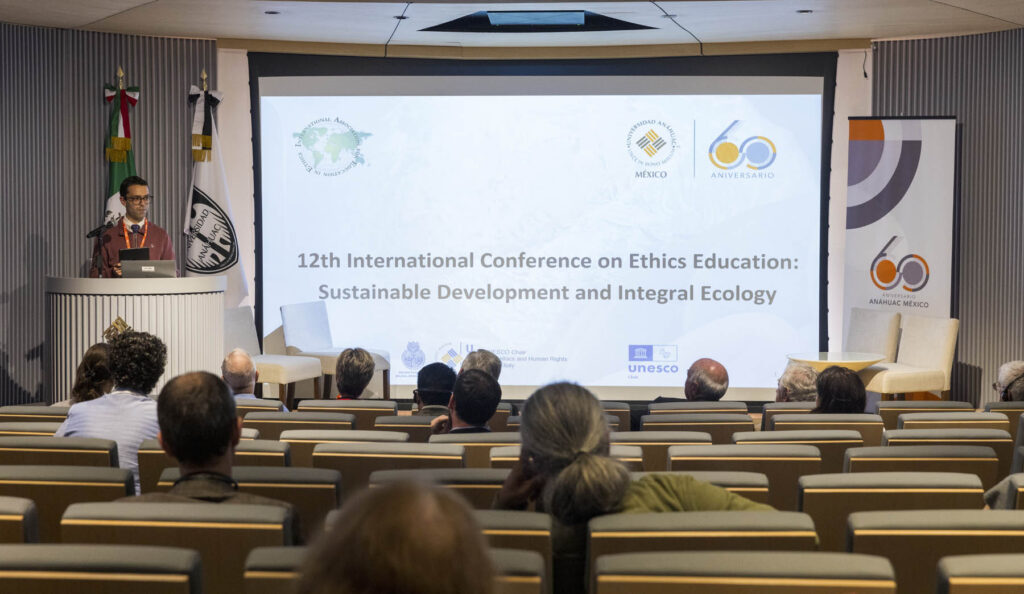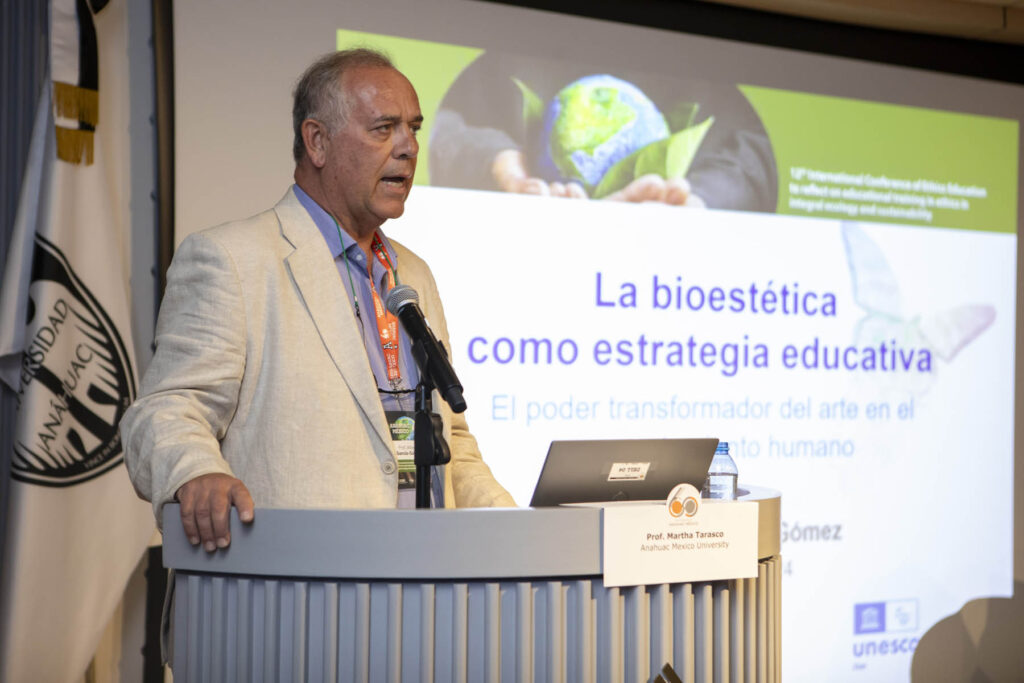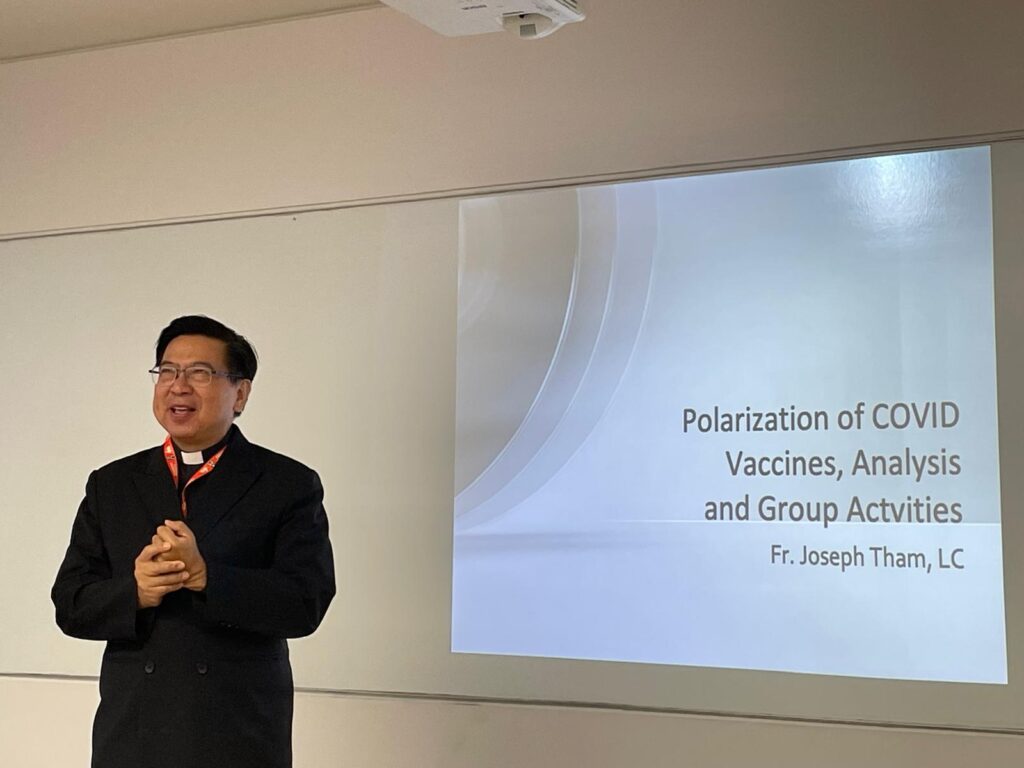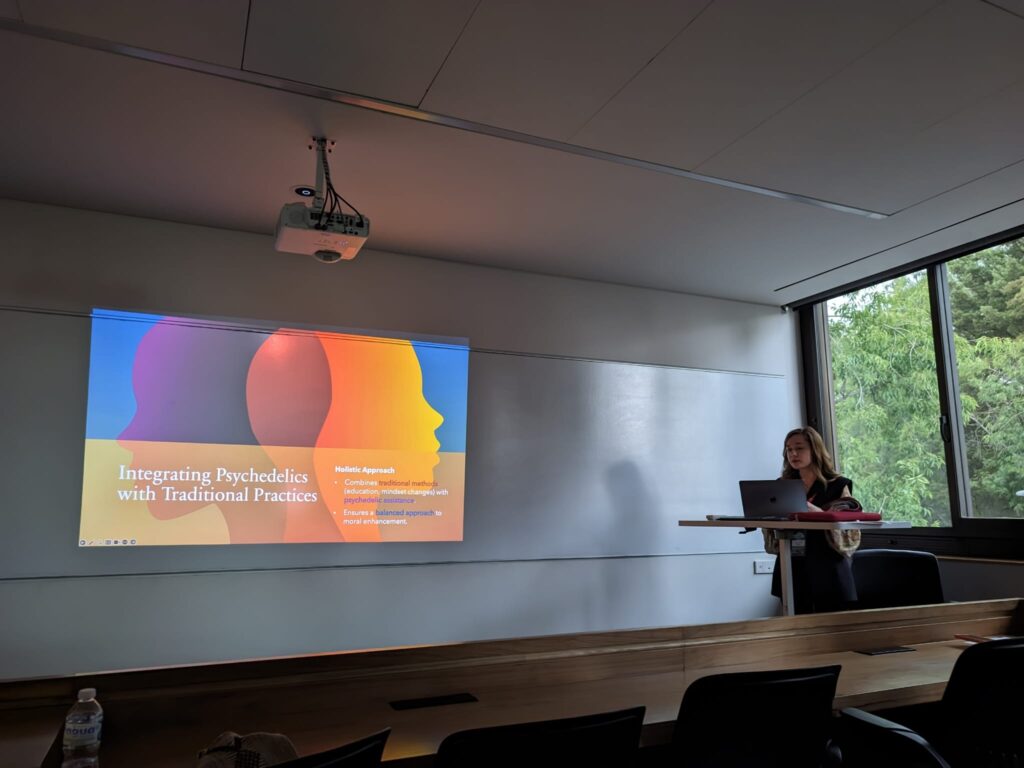A number of members of the Faculty of Bioethics and UNESCO Chair in Bioethics and Human Rights, including Dean Prof. Alberto Garcia, Prof. P. Joseph Tham, full professor, and Ana Maria Ganev PhD candidate and #unescobiochair research assistant, participated in the 12th “International Conference on Education in Ethics” held in Mexico City, Mexico on June 19, 2024. The conference was sponsored by the UNESCO Chair in Bieothics and Human Rights, the Centro Anahuac de Desarrollo Estrategico en Bioethics, and the International Association for Education in Ethics.

Alberto García Gómez – Bioaesthetics as an educational strategy

In contemporary culture, which is inclined to graphic and digital communication and to emotional and sensitive experiences, proposing the approach to the universal values and principles of bioethics, through the universal language of art, seems to be an innovative and effective way to educate in bioethics.
Once the foundation and relationship between the good and the beauty is identified, the principles and values of global bioethics and its convergences with personalist bioethics (bioaesthetics) might be analyzed through artistic and aesthetic experience and stimulates designing of new strategies and the realization of pedagogical proposals for education in bioethics, through artistic resources.
Study the relationship and interaction between bioethics and art and the impact of art in human behavior is part of Bioaesthetics aiming to inspire lovers of the arts to appreciate universal artistic language as a possibility for the expression of moral values and ethical principles, with respect for human dignity and human rights, in a globalized and multicultural world. Appreciation and dissemination of this transformative power of the arts in educating in bioethics and its influence on culture, might be an effective tool to inspire and educate ethical biomedical research, clinical ethics, as well as environmental ethics being the main areas of bioethics.
Joseph Tham – Polarization of COVID Vaccines, Analysis and Group Actvities

This lecture was given in the 21st Summer Course Program on “Dialogue, Friendship, and Polarization Bioethics” by the Faculty of Bioethics in 2023. The one-day session focused on the debates on COVID-19 vaccines. We analyzed the SAGE Report (WHO 2014) on vaccine hesitancy, which listed the main cause of polarzation related to trust: Trust in the government, science, pharmaceutical companies, and the new vaccines, and the sources of information related to peer groups and social media. The polarization is less of a problem of lack of information than social identity, sometimes worsened by the echo chamber effect.
In the group activities, students were asked to examine different elements of trust crucial in vaccine hesitancy during COVID-19. The three activities were: 1) compare how the SAGE report coincides with the pandemic of ID 19. 2) The role of social media and fake news. 3) The place of vaccine mandates. The different groups proposed ways of minimizing vaccine hesitancy and polarization in future pandemics by bolstering trust to the rest of the class. The paper and the presentation will look at some these findings and propose how group activities might enhance ethics education.
Ana Maria Ganev – “Morality pills” for Moral Enhancement (psychedelics)

Up until now, moral progress, and in part ethics education, was molded by culture and religion, specifically through “literary morality pills”, such as proverbs, parables and fables, deemed as safe and effective tools for moral enhancement. These literary devices are all forms of condensed philosophy or wisdom aimed at shaping the moral character of the listeners. Nevertheless, such cognitive aids may not be enough for achieving effective and long-lasting moral improvements. Thus, a “chemical morality pill”, particularly psilocybin (the active ingredient of “magic mushrooms”), is currently viewed as a real and tangible biochemical tool for moral enhancement.
Psilocybin, the active ingredient in so-called “magic mushrooms,” appears to occasion profound spiritual experiences and enduring positive personality changes for many users. A growing body of evidence suggests that psilocybin can increase openness, connectedness to others, and nature relatedness. It may reduce authoritarian attitudes and prejudice. By catalyzing mystical states and reshaping personality, psilocybin could help cultivate virtues like empathy, compassion, and ecological concern. Thus this natural psychoactive substance may represent a powerful moral enhancer.
However, psilocybin is not a quick fix or magic bullet for moral improvement. Any program of ethical betterment requires sustained effort across multiple fronts. But used judiciously under professional supervision, psilocybin could perhaps give some individuals access to life-changing spiritual insights and moral clarity. It may serve as a catalyst or supplement to advance moral development already being fostered through ethical instruction, contemplative practices, therapy, and life experience. In this way, the best of ancient wisdom and modern science can work together: literary morality pills providing the cognitive content, psilocybin providing a biochemical catalyst.
This paper explores and seeks to understand if and how psilocybin, one of the main psychedelic substances, may represent a viable option for assisting moral enhancement and be considered as a “supplement” for achieving moral progress in a harmoniously integrated way alongside traditional moral education and psychotherapy.

